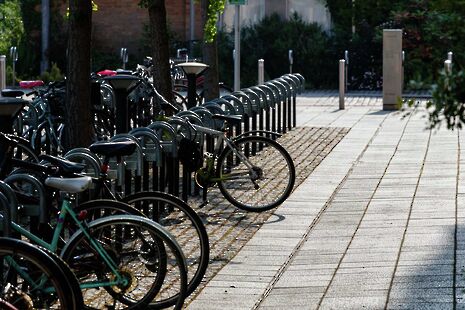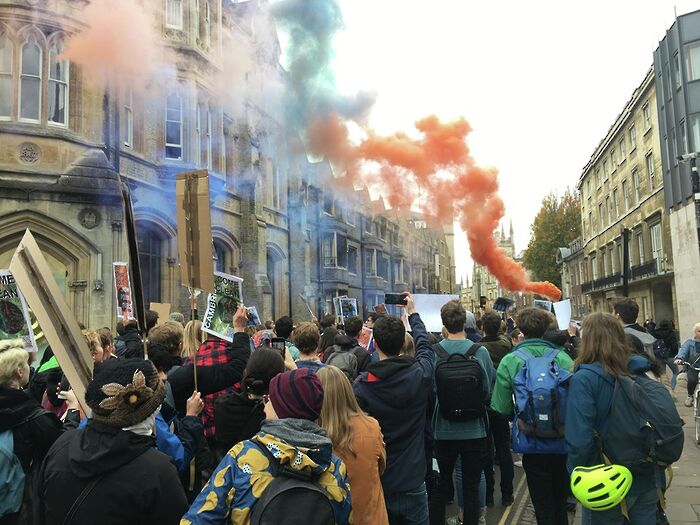Thousands sign petition to stop introduction of buses onto busy city cycle route
Up to 30 buses an hour could be added to the route which connects the city centre and the West Cambridge site and sees up to 22,000 cyclists a week

Over 2,100 people have signed a petition opposing plans to convert Adams Road, Cambridge’s “busiest peak time cycle route,” into a busway.
Adams Road connects Cambridge city centre with the West Cambridge site, making it a popular cycle route for commuting students. It is currently used by pedestrians, bicycles and cars.
Great Cambridge Partnership’s (GCP) Cambourne to Cambridge Better Public Transport Project, however, would see this route converted into a busway. According to the petition, this would result in as many as 30 buses an hour travelling the route, which currently sees up to 22,000 bicycles a week.
Dan Strauss, coordinator of the SYCR campaign and organizer of the petition, has expressed concern that this could lead to frequent conflict between vehicles and cyclists on the narrow road and would lead to noise and air pollution for local residents.
The Cambourne to Cambridge project began in late 2015, with six route options suggested. One of these proposed linking the Busway with Grange Road via the Rifle Range track, a plan that was popular as it allowed for segregated transit infrastructure, minimised the impact on wildlife areas and had the most benefit to cyclists, pedestrians and passengers.
In a project consultation comparing this with the Adams Road route, 48% of respondents said they preferred this off-road option to an on-road route with public transport priority lanes or junction improvements. However, now in the project’s second phase, the Adams Road plan has been declared the most likely option by GCP.
A GCP spokesperson told Varsity: “The Adams Road option is being revisited in light of a number of factors, including the impact of the Rifle Range option on the Green Belt and the West Fields.”
In response to the safety and environmental concerns raised by Strauss’ petition, the spokesperson also stated that “a full road safety audit will be carried out as part of scheme development” and that only “modern, sustainable, electric” buses will be in use on the route.
GCP has also offered other cycling options, such as segregated cycle paths on Madingley Road that will be in use before the Cambourne to Cambridge Project is completed. “The Madingley Road cycle lanes are fabulous,” Strauss told Varsity.
“But what about Adams Road and its thousands of cyclists? Cycle traffic on Adams Road is about 80% higher than on Madingley Road.” He also explained that this alternative route does not go in the direction of the town centre, which is the destination for the vast majority of cyclists.
Strauss’ petition has attracted significant support in the five weeks since it was launched. “The [University] student body has been particularly supportive,” he says.
“The vast majority of cyclists who use this route, and whose lives will be endangered if buses are allowed to use it, are University students or employees,” Strauss said. “The University must put maximum pressure on the GCP to keep this route safe for cyclists.”
The University, one of GCP’s five partners, has been under pressure to make progress in its efforts to encourage sustainable travel among its members since a report released this year found that it has missed key environmental targets. Whilst car use rose between 2016/17 and 2017/18 and bus use remained static, cycling rates decreased, falling from 42% to 39%.
In response, the University developed their 2019-2024 Transport Strategy, as part of which it committed to “work[ing] with its partners in GCP and the Combined Authority to deliver improved cycling infrastructure that delivers more direct, attractive and safer cycling routes.”
Regarding the Adams Road plan, a University spokesperson told Varsity: “We continue to work with our partners in the Greater Cambridge Partnership to ensure all proposals are in line with not just our own strategy, but also the wider priorities of the community.”
The decision will go before the GCP Board early next year. The Cambourne to Cambridge Project is scheduled to be completed in 2024.
 News / Clare Hall spent over £500k opposing busway 24 December 2025
News / Clare Hall spent over £500k opposing busway 24 December 2025 Comment / The ‘class’ of Cambridge24 December 2025
Comment / The ‘class’ of Cambridge24 December 2025 News / Caius mourns its tree-mendous loss23 December 2025
News / Caius mourns its tree-mendous loss23 December 2025 Comment / League tables do more harm than good26 December 2025
Comment / League tables do more harm than good26 December 2025 News / Girton JCR publishes open letter expressing solidarity with Palestine25 December 2025
News / Girton JCR publishes open letter expressing solidarity with Palestine25 December 2025









